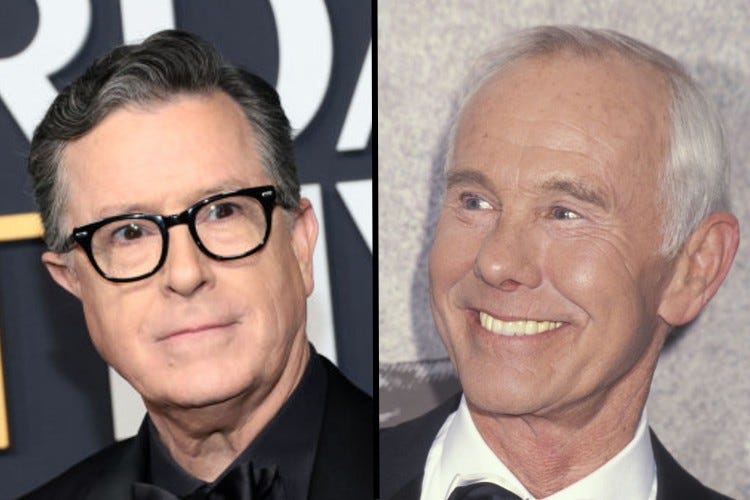Should Late Night Ditch Politics?
Are Colbert and Carson even the same genre?

In the wake of Colbert’s cancellation, some people are wondering if late night TV should ditch politics and get back to what it does best: Feigning interest in B-plus celebrities’ C-minus movies. This clip from Johnny Carson is making the rounds, and in the world of late night, when Johnny speaks, you’re hearing the affable, Midwestern voice of God.
The “Colbert got too political” narrative makes sense. In comedy, politics turns off three-quarters of your audience, because half of your audience is as interested in politics as I am in Albanian Pro Rugby, and half of the people who are paying attention want to see a Klieg light fall from the rafters and crush your skull. Late night shows didn’t used to be political; during the period I call the Pax Carsonia, the edgiest take allowable was “Dan Quayle’s intelligence will perhaps not be lauded by bards throughout the ages.” The implosion of late night was concurrent with a genre-wide shift towards political content, so it’s reasonable to wonder if the second thing caused the first.
I think that the shift towards political content contributed to late night’s downfall, but I see two big problems with the simple “go woke go broke” narrative. The first is that other factors clearly played a role in late night’s demise. The second is that the notion that political content tanks your ratings is contradicted by two high-profile examples, one of which is Colbert’s Late Show. There’s some truth to the narrative, but it’s too simple, and I think that unpacking what’s right and wrong about it tells us something about what political comedy is and whether the entire genre should be put into a sack weighted with rocks, thrown into a lake, and never spoken of again.


